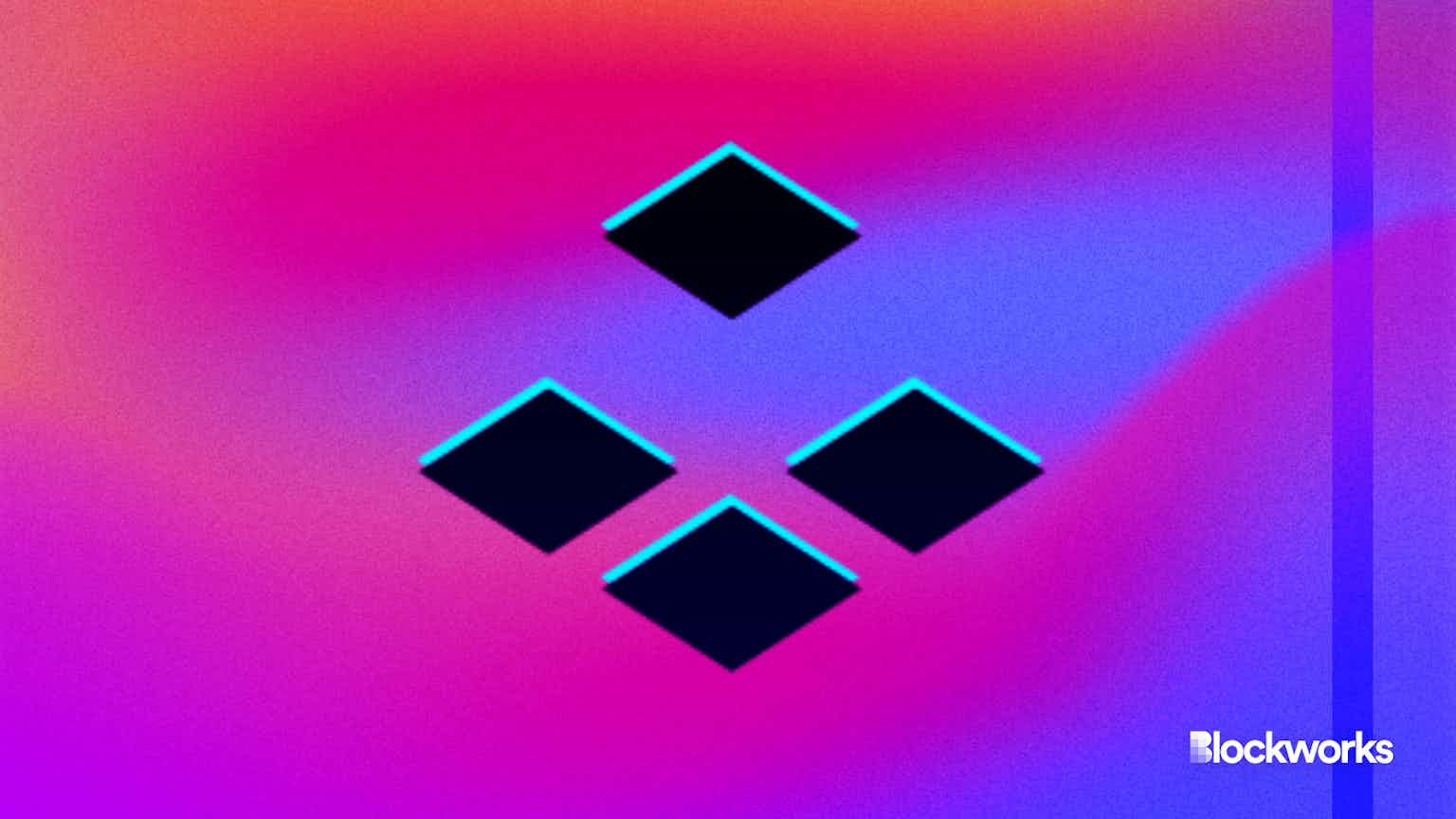Genesis Active Loans Dropped 66% in Q2
Crypto prime broker calls the second quarter “one of the more dramatic in the crypto ecosystem’s history” in latest report

Blockworks exclusive art by axel rangel
key takeaways
- Genesis’ loans outstanding dropped from $14.6 billion in the first quarter to $4.9 billion in the second quarter
- The firm’s custody business processed its highest number of quarterly transactions, an 8% jump from the first quarter
New loans from Genesis’ lending desk declined 9% during this year’s second quarter, the firm revealed Wednesday, while active loans outstanding dropped 66% from the prior period.
Genesis launched the first over-the-counting bitcoin trading desk in the US in 2013 and facilitates billions in monthly crypto trades, loans and transactions.
The company’s active loans outstanding, as of June 30, amounted to $4.9 billion — down from $14.6 billion at the end of the first quarter. Challenging credit markets gripped the industry during the past three months.
US dollars and equivalents made up almost 54% of Genesis’ loan book, up from 48% at the end of the first quarter amid what the report called a “flight to quality.”
Bitcoin now makes up more of Genesis’ book, with its BTC loan weight rising from 28.7% to 30.4% quarter over quarter. Ether’s weight shrunk from 16% in the first quarter to 11.4% at the end of June, reflecting its relative price underperformance from April through June.
Genesis’ lending desk originated roughly $40.4 billion — down 9% quarter over quarter — as crypto lending suffered a strong contraction in recent months. Most of those loans occurred in April and May, as the collective crypto market capitalization shed more than 40%, from $2.2 trillion to less than $1.3 trillion.
A Genesis spokesperson declined to comment beyond the report.
Digital Currency Group absorbed Genesis losses
This year’s second quarter will likely be remembered as “one of the more dramatic in the crypto ecosystem’s history,” the report says.
Three Arrows Capital (3AC) first revealed it was facing potential insolvency in June after a $400 million liquidation. 3AC took a major hit with the collapse of Terra’s stablecoin in May due to substantial investment in the ecosystem’s LUNA token.
Though Genesis had loan exposure to 3AC, Genesis parent company Digital Currency Group assumed liability of losses from those loans, the company noted in Wednesday’s report.
Simon Jones, CEO and co-founder of Voltz Labs, told Blockworks Genesis’ falling lending numbers reflect what he called the “CeFi collapse” and macroeconomic factors. Centralized finance lender Celsius, for example, initiated bankruptcy proceedings last month after suspending withdrawals and transfers in June.
“Some of these lending businesses are getting squeezed on both sides,” Jones said. “If they are sourcing capital from traditional finance…rates are going up, and then in DeFi, yields are going down, which basically means the rate they can charge to a borrower…is going down.”
Though Genesis’ new loans and active loans outstanding saw declines, the company’s spot desk traded about $17.2 billion in the second quarter — a 51% increase from the prior quarter. Its derivatives desk traded $26.6 billion, down 4%.
Genesis Custody processed its highest number of quarterly transactions, an 8% increase from the first quarter. The business also saw a 20% jump in the number of custody clients during the period.
Start your day with top crypto insights from David Canellis and Katherine Ross. Subscribe to the Empire newsletter.





